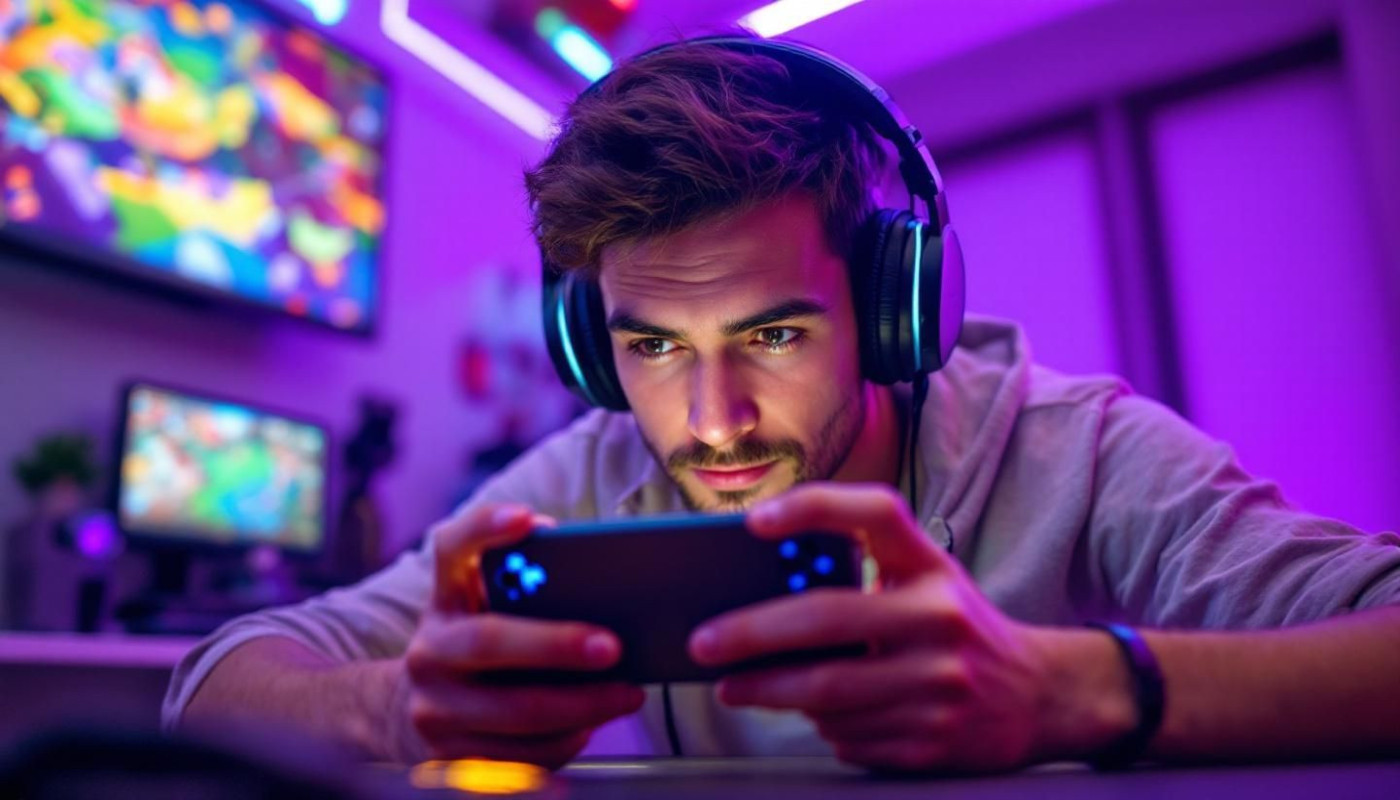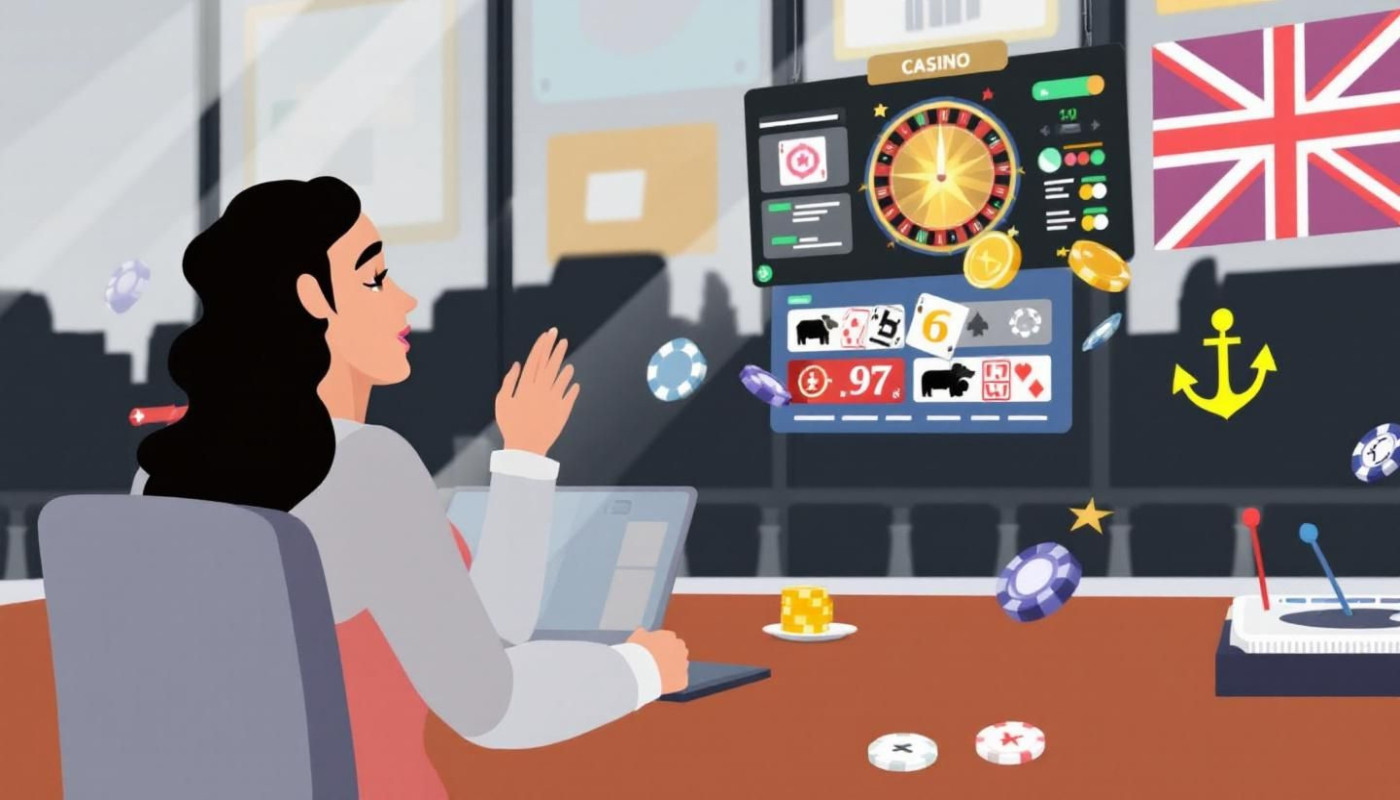Table of contents
The advent of technology has given rise to a new era of gaming, encompassing both online and live experiences. Each platform offers a distinctive environment, fostering unique psychological landscapes for players. The influence of these gaming models on individual psychology is a captivating subject, as the virtual and real worlds intertwine to shape player perceptions, behaviors, and emotions. Delving into this topic uncovers the subtle yet significant ways in which gaming modalities affect the human psyche. Whether it is the solitude of the screen or the camaraderie around the table, the impacts are profound and multifaceted. This exploration seeks to uncover the layers of psychological effects that stem from engaging in online versus live gaming. The insights garnered here will intrigue anyone keen to understand the deeper ramifications of their gaming choices on their mental well-being. Embark on a journey to decode the psychological tapestry woven by these two gaming experiences, and discover how they shape the contours of our minds.
Comparative Analysis of Player Interaction
In the realm of gaming, the dynamics of player interactions diverge significantly between online and live settings, impacting the social fabric of gaming communities. In online environments, social gameplay unfolds within virtual arenas, where players may feel part of a broader narrative and connect with global online communities. These digital spaces foster teamwork in gaming, as players often need to collaborate to achieve common goals. Gaming communication, albeit mediated through screens, can be just as nuanced and critical as in-person exchanges, enhancing players' ability to coordinate and strategize effectively.
Conversely, live gaming typically offers immediate, face-to-face interaction, promoting social facilitation where one's performance can be elevated in the presence of others. This aspect can deepen the sense of inclusion and camaraderie among players. However, isolation in gaming is a multifaceted issue that affects both spheres. Online gamers may experience a sense of solitude despite being connected to many, due to the lack of physical presence and non-verbal cues. On the other hand, live gamers might feel excluded if they are not part of the local gaming circles. Understanding these intricate social dynamics is key to appreciating the psychological nuances of both online and live gaming experiences.
The Role of Anonymity and its Psychological Effects
Anonymity in online gaming, often referred to as "online gaming anonymity," significantly impacts how individuals interact within virtual environments. Without the accountability that comes from being known, players may experience a sense of detachment from their actions, leading to a phenomenon known as "deindividuation." This term describes a state where individuals are less restrained by social norms due to the perceived lack of identification and surveillance. As a result, player behavior might shift, sometimes leading to more aggressive or unethical actions that they would likely avoid in a live gaming scenario. The veil of anonymity can diminish a sense of responsibility, allowing some players to act in ways that starkly contrast with their real-world personalities.
Conversely, live gaming's transparency, where players are physically present and identifiable, tends to uphold a higher standard of accountability in gaming. Being face-to-face with opponents and peers naturally encourages players to maintain social etiquettes and adhere to a personal code of conduct. Such direct interaction can foster a community where actions directly reflect on the player's identity, thus promoting psychological safety and respectful behavior. The contrast between online identity and physical presence in gaming environments offers a rich field of study for behavioral psychologists, particularly those specializing in online behavior and identity. Through understanding these dynamics, interventions can be designed to mitigate negative behaviors and enhance the overall quality of the gaming experience for all participants.
Instant Gratification vs. Long-term Rewards
The contrasting nature of rewards in gaming has a profound effect on player psychology. Instant gratification in gaming, a prevalent feature of many online platforms, offers immediate rewards to players, fostering a cycle of rapid satisfaction that can encourage frequent play. This instant feedback loop is often linked to the engaging nature of variable-ratio reinforcement schedules, where unpredictable rewards are particularly compelling. On the other hand, long-term achievements in live gaming contexts, such as those found in board games or sports, tend to offer more delayed gratification. These rewards require sustained effort and commitment, potentially leading to deeper gaming satisfaction. Player motivation can be greatly influenced by these dynamics, with some individuals preferring the quick payoff of online environments, while others derive more pleasure from the dedication required for long-term rewards.
Addiction to gaming, an increasingly concerning issue, is also impacted by these reward systems. The immediacy of online rewards can contribute to addictive behaviors, as the allure of 'just one more game' becomes hard to resist. In contrast, the slower pace and less frequent rewards of live gaming can sometimes act as a natural limit to excessive play. For those seeking an example of online environments that embody the instant reward model, one might consider exploring online casino games at CasinoCruise, which offers a variety of such experiences.
Impact on Cognitive and Motor Skills
Online and live gaming present distinct environments that can foster various aspects of cognitive and motor skills development in players. Neuroscientists and cognitive psychologists, with expertise in human-computer interaction, have illuminated the role of neuroplasticity—the brain's ability to reorganize itself by forming new neural connections throughout life—in these developmental changes. Engaging in online gaming, which often requires quick thinking and rapid adaptation to digital scenarios, can enhance a player's problem-solving in gaming abilities. This form of play can also refine hand-eye coordination, as players must accurately translate visual information into immediate motor response.
Conversely, live gaming typically involves a more tangible interface, such as board games or physical controllers, which can also improve motor skills but through a more tactile approach. The in-person interaction and tangible nature of live gaming can also contribute positively to cognitive development in gaming, especially in areas such as strategic planning and real-world problem-solving. Nonetheless, a drawback to the prevalence of online gaming is the potential reduction in physical activity in gamers. Spending long periods in a sedentary position may diminish overall physical health, and overstimulation from intense and fast-paced gaming environments can lead to issues such as attention deficits or sleep disturbances. In contrast, live gaming, which may involve more social interaction and potential for physical movement, can mitigate some of these negative effects. The balance between cognitive skill enhancement and maintenance of physical health is a delicate one, requiring players to moderate their engagement with both online and live gaming experiences.
Emotional Responses to Winning and Losing
The emotional impact of gaming is profound, shaped by the outcomes of winning and losing, which stir different reactions in online and live environments. In the world of gaming, victories often elicit joy and a sense of achievement, whereas losses can trigger frustration or even anguish. The intensity of these emotions can vary significantly between online and live settings. Online players may experience a muted response due to the lack of physical presence and immediate social interaction. Live gaming, conversely, often amplifies emotional responses because of the group dynamics in gaming, where peer reactions can intensify feelings of triumph or defeat.
Expressing emotions during gaming is also contingent upon the context. A solitary player might suppress their emotional expression, while group settings can lead to overt displays of elation or disappointment. This dichotomy not only impacts the player's immediate emotional state but also their overall personal growth in gaming. Through both positive and negative experiences, players learn to anticipate future emotional states, a concept known in psychology as affective forecasting. Those who can accurately predict and manage their emotional responses to the inevitable ups and downs of gaming are less likely to experience distress and more likely to use these experiences as a catalyst for personal development.
In-person interactions in live gaming scenarios may contribute to a greater understanding of how to navigate emotions effectively, thanks to the immediate feedback from peers. Conversely, the relative anonymity of online gaming may offer a safer space for individuals to explore their emotional reactions without the immediate scrutiny of others. Regardless, both settings offer ample opportunities for learning emotional regulation, a skill that, once honed, can extend far beyond the gaming arena. Thus, the journey of winning and losing, with its complex emotional tapestry, becomes a pivotal player in the broader narrative of a gamer's psychological resilience and growth.
Similar

Exploring The Benefits Of Regional Collaboration In Network Development

Unlock The Thrills: Exploring Different Online Casino Games

How Photography Enhances The Casino Experience

Exploring The Synergy Of Tradition And Technology In Modern Casinos

Maximizing Your Wins On Chicken Road 2: Top Strategies Uncovered

Effective Withdrawal Strategies For Online Casino Winnings

Exploring The Popularity Of Non-UK Casino Sites Among British Players

How Modern Websites Ensure User Authenticity?

Exploring The Latest Trends In Sustainable Fashion For A Chic Lifestyle

The Rising Popularity Of Money Games On Social Media

Exploring The Benefits Of Comprehensive Loyalty Programs In Online Casinos

Exploring The Importance Of Certification For Online Gambling Platforms

Exploring The Role Of Streaming In Promoting New Casino Games

How Virtual Team-building Activities Enhance Remote Work Dynamics

Exploring The Popularity Of Money Crash Games In Online Casinos

How To Benefit From Bonuses And Promotions In Online Casinos

The Benefits Of Choosing Mobile Platforms For Playing Chicken-themed Games

Exploring The Excitement Of A High-Stakes Road Crossing Game

The Advantages Of Using Secure Payment Methods In Online Casinos

How AI-driven Recommendations Are Reshaping Online Engagement

Maximizing Your Winnings: Tips For Online Casino Bonuses And Promotions

Exploring Traditional Japanese Crafts Through Modern E-commerce Platforms

Exploring The Thrills Of Online Mini Games Like Plinko

The Evolution Of Slot Games In The Digital Era

Exploring The Thrills Of Next-Generation Crash Casino Games

How To Choose The Best Online Casino Game For You

The Rise Of Animal-themed Games In Online Casinos

Exploring The Thrills Of Online Casino Bonuses And Secure Gaming Options

Exploring The Thrills Of Online Casinos: A Guide To Promotions, Games, And Secure Payment Methods

A Comparative Analysis Of Speedway Racing Techniques Around The World

The Thrill Of Randomness: Why Plinko Is The Ultimate Game Of Chance

The Evolution Of Live Casino Games: From Traditional Tables To Game Shows

The Impact of Game Updates on CS2 Betting Strategies

Exploring the Thriving World of Online Casino Gaming in Ireland

What are the most profitable online casino games?

3 tips to win at PES 2020 efootball

3 tips for Halo Infinite beginners

2 online gambling pitfalls you should know about

